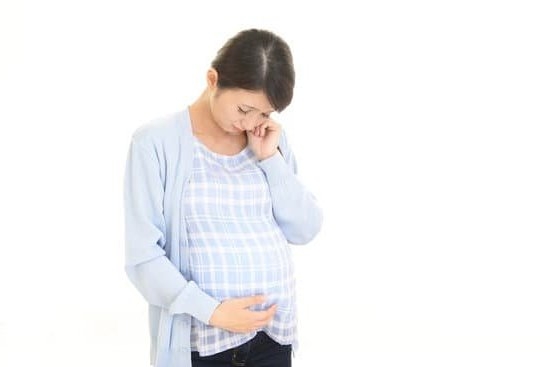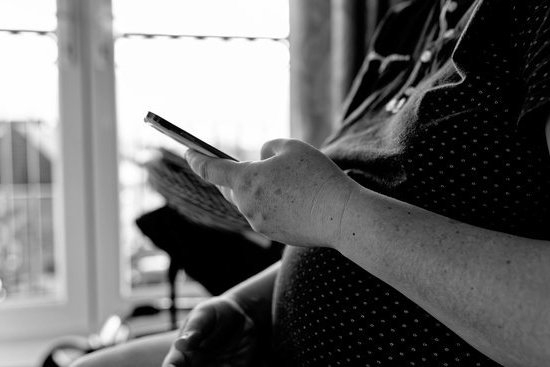Are you wondering, “Can I take a pregnancy test after 5 days?” Knowing when to take a pregnancy test is crucial for accurate results and peace of mind.
Understanding the menstrual cycle, how pregnancy tests work, and the importance of timing are key factors in determining when it is appropriate to take a pregnancy test. This article will provide valuable information on when it is possible to take a pregnancy test after potential conception and the factors that may affect its accuracy at this early stage.
Taking a pregnancy test too early can lead to false negatives, causing unnecessary worry. By understanding the menstrual cycle and how pregnancy tests work, you can make an informed decision about the right time to take a test. This article will also explore early detection pregnancy tests and their reliability. Whether you are actively trying to conceive or simply want to confirm or rule out a potential pregnancy, knowing when to take a pregnancy test is essential for accurate results.
The importance of timing cannot be overstated when it comes to taking a pregnancy test. Waiting for the right time is crucial for reliable results, as testing too early may not detect the presence of the pregnancy hormone HCG.
By learning about implantation and common early pregnancy symptoms, you can determine when it may be appropriate to consider taking a pregnancy test based on symptoms alone. Additionally, this article will address what to do if the test is negative and when to seek medical advice regarding a potential pregnancy.
Understanding the Menstrual Cycle
The menstrual cycle plays a crucial role in determining when a pregnancy test can accurately detect the presence of the pregnancy hormone, hCG. Understanding the menstrual cycle is essential for women who are trying to conceive or are concerned about a potential pregnancy.
The menstrual cycle typically lasts 28 days, although it can range from 21 to 35 days in adult women. Ovulation, which is the release of an egg from one of the ovaries, usually occurs around day 14 of the menstrual cycle.
Ovulation is a key factor in determining when a pregnancy test can be taken. If an egg is fertilized by sperm during intercourse, it travels down the fallopian tube and implants itself into the uterus, leading to pregnancy. After implantation, the body begins to produce hCG, the hormone that pregnancy tests detect.
It usually takes about six to eight days after ovulation for the fertilized egg to implant itself into the uterus and start producing hCG. Therefore, it is recommended to wait at least until this point to take a pregnancy test for accurate results.
In summary, understanding your menstrual cycle and when ovulation occurs is crucial in determining when you can take a pregnancy test after potential conception. Waiting at least six to eight days after ovulation before taking a test can improve accuracy and reduce the chances of receiving a false negative result.
| Menstrual Cycle Information | Data |
|---|---|
| Average length of menstrual cycle | 28 days |
| Range of menstrual cycle length in adult women | 21-35 days |
| Timing of ovulation in a typical cycle | Around day 14 |
How Pregnancy Tests Work
Pregnancy tests are designed to detect the presence of a hormone called human chorionic gonadotropin (HCG) in urine or blood. HCG is produced when a fertilized egg attaches to the uterine lining, making it an early indicator of pregnancy. There are various types of pregnancy tests available, including over-the-counter urine tests and blood tests performed in a healthcare setting.
Urine pregnancy tests are convenient and easy to use, usually involving holding a test stick under a stream of urine or dipping it into a collected sample. These tests can be taken at home and provide results within minutes. On the other hand, blood tests for pregnancy need to be conducted at a medical facility and can measure lower levels of HCG earlier in pregnancy than urine tests.
The accuracy and reliability of pregnancy tests depend on various factors, including the sensitivity of the test being used and whether it is performed correctly. While most over-the-counter pregnancy tests claim to be accurate as early as the first day of a missed period, some newer early detection tests may allow women to take them sooner after potential conception.
These early detection tests can provide results up to six days before a missed period, but their accuracy increases the closer they are taken to the date of expected menstruation.
| Pregnancy Test Type | Method | Earliest Detection Time |
|---|---|---|
| Urine Test | At-home test with urine sample | First day of missed period or up to 6 days before expected period with early detection test |
| Blood Test | Conducted at medical facility | Can detect HCG levels earlier than urine test, as soon as 7-12 days after conception |
It is important for individuals thinking about taking an early pregnancy test to consider variations in cycle length and ensure they understand how early testing may lead to false negatives. In cases where there is doubt about the result or if pregnancy symptoms persist despite a negative result, consulting with a healthcare professional can provide clarity and guidance on next steps.
Can I Take a Pregnancy Test After 5 Days?
Understanding the 5-Day Wait
When it comes to taking a pregnancy test after 5 days, it’s important to understand the significance of this timeframe. Conception typically occurs around the time of ovulation, which is usually midway through the menstrual cycle.
After conception, it takes about 6-12 days for the fertilized egg to implant itself into the uterine lining and start producing HCG, the pregnancy hormone that pregnancy tests detect. This means that taking a pregnancy test just 5 days after potential conception may not yield accurate results.
Factors Affecting Accuracy
There are several factors that can affect the accuracy of a pregnancy test when taken only 5 days after potential conception. One of these factors is the level of HCG in your body. In the early stages of pregnancy, HCG levels are still relatively low and may not be detectable by some pregnancy tests. Additionally, every woman’s body is different, so HCG levels can rise at different rates for different individuals.
Early Detection Pregnancy Tests
While most standard home pregnancy tests are designed to be used on the first day of a missed period or shortly thereafter, there are some early detection tests available on the market. These tests claim to be sensitive enough to detect lower levels of HCG in urine earlier than traditional tests.
Some early detection tests may be able to provide accurate results as early as 6-8 days after ovulation, but it’s important to remember that their accuracy can still vary from person to person.
The Importance of Timing
When it comes to taking a pregnancy test, timing is crucial in order to obtain accurate results. Many women wonder, “Can I take a pregnancy test after 5 days?” The answer to that question depends on various factors related to the menstrual cycle and the process of conception.
Understanding the menstrual cycle is essential in determining when a pregnancy test can be taken. Ovulation typically occurs around day 14 of a 28-day menstrual cycle. However, this can vary from woman to woman. It’s important to track ovulation in order to have a better idea of when it is safe to take a pregnancy test.
Factors such as the length of the menstrual cycle and the date of potential conception can also impact when a pregnancy test can be taken. For example, if a woman has a shorter menstrual cycle, she may need to wait longer before taking a test. Additionally, early detection pregnancy tests are available for those who want to test before their missed period, but these tests may not always be accurate at such an early stage.
Signs and Symptoms of Pregnancy
Taking a pregnancy test can be an anxiety-inducing ordeal for many women who are trying to conceive. However, understanding the signs and symptoms of pregnancy can help determine when it is appropriate to take a test and manage expectations for the results.
Common Early Pregnancy Symptoms
Some common early signs of pregnancy include missed periods, nausea or vomiting (morning sickness), breast tenderness, frequent urination, fatigue, and heightened sense of smell. Some women may also experience light spotting or cramping, known as implantation bleeding, when the fertilized egg attaches to the uterine lining. These symptoms typically start around the time of a missed period, but some women may experience them just a few days after conception.
It’s important to note that not all women will experience the same symptoms or any symptoms at all. Every woman’s body is different, so some may have no noticeable signs until later in their pregnancy. Additionally, these symptoms can also mimic those of premenstrual syndrome (PMS), making it difficult to distinguish between the two without taking a pregnancy test.
Reliability of Symptoms
While experiencing these symptoms
It’s important to keep in mind that each woman’s experience with early pregnancy symptoms will vary. Consulting with a healthcare professional about any concerns and deciding on an appropriate time for a pregnancy test based on individual circumstances is essential in determining if you are pregnant.
What if the Test Is Negative?
If you take a pregnancy test after 5 days of potential conception and it comes back negative, it’s important to manage your expectations. It can be disappointing to receive a negative result, especially if you were hoping for a positive outcome. However, it’s essential to remember that there are several factors that can affect the accuracy of the test at this early stage.
Factors such as the sensitivity of the pregnancy test, the timing of implantation, and the levels of the pregnancy hormone hCG in your body can all impact the result. In some cases, hCG levels may not be high enough to be detected by a home pregnancy test within 5 days of conception. This is why waiting for the right time to take a pregnancy test is crucial.
If your period still has not arrived after receiving a negative result on a home pregnancy test, it may be worth considering retesting after a few days. Sometimes hCG levels may still be too low to detect in the early stages of pregnancy.
Additionally, if you are experiencing symptoms of pregnancy but have received a negative result, it’s advisable to wait a few more days before retesting. If you continue to receive negative results but believe you may still be pregnant, this is when it’s best to seek medical advice from a healthcare professional.
Seeking Medical Advice
If you find yourself in a situation where you are unsure about the results of an at-home pregnancy test, seeking medical advice can provide clarity and peace of mind. While some at-home pregnancy tests claim to be able to detect pregnancy as early as 5 days before a missed period, there are various factors that may affect the accuracy of the test at this stage.
This is why consulting a healthcare professional for a pregnancy test can provide more reliable results.
Healthcare professionals have access to more sensitive and accurate tests that can detect pregnancy earlier than some at-home kits. Additionally, they can offer guidance on when it is best to take a pregnancy test based on your individual menstrual cycle and potential conception date. This personalized approach can help alleviate any confusion or uncertainty about when to take a pregnancy test after 5 days.
In some cases, healthcare professionals may also offer additional support and information for those who are trying to conceive. They can discuss fertility options, reproductive health, and provide resources for further testing or treatment if needed. Overall, if you are wondering “Can I take a pregnancy test after 5 days,” it is recommended to seek medical advice for the most accurate results and appropriate guidance.
Frequently Asked Questions
Is 5 Days Too Early to Take a Pregnancy Test?
Five days after conception is usually too early to take a pregnancy test. At this point, the levels of hCG in the body may not be high enough to be detected by a home pregnancy test.
Can Pregnancy Be Confirmed in 5 Days?
It’s unlikely that pregnancy can be confirmed in just 5 days. Generally, it takes about 7-10 days for a fertilized egg to implant in the uterus and start producing enough hCG to be detectable by a pregnancy test.
How Accurate Is a Pregnancy Test 5 Days After Conception?
A pregnancy test taken 5 days after conception may not be very accurate. The levels of hCG may still be too low for the test to detect, leading to a false negative result. It’s best to wait at least a week after a missed period for more accurate results.

Welcome to my fertility blog. This is a space where I will be sharing my experiences as I navigate through the world of fertility treatments, as well as provide information and resources about fertility and pregnancy.





